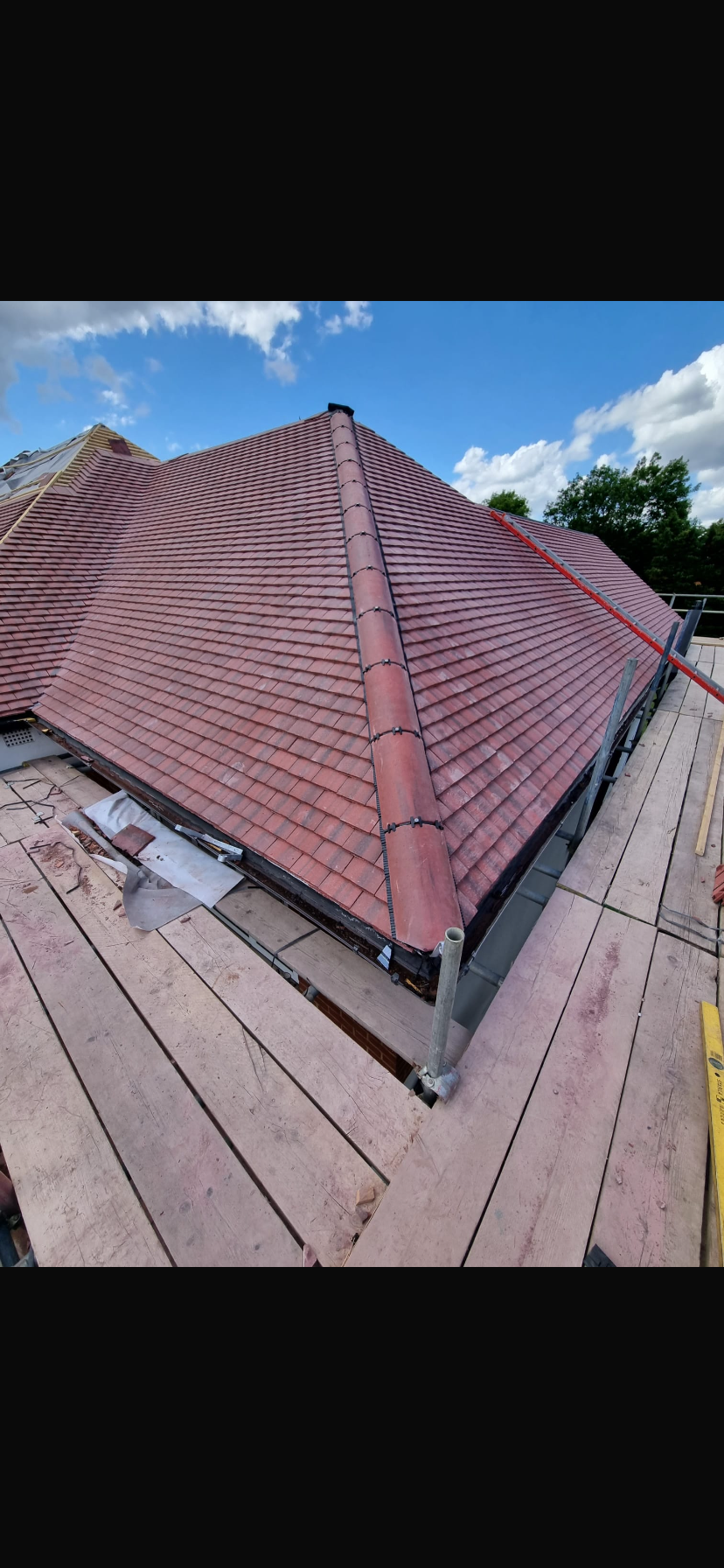+44 7853 968135
How much should a roofer charge per hour?
Understanding fair pricing for roofing work is crucial for UK homeowners planning repairs or installations. Roofer charges vary significantly across different regions, job complexities, and contractor experience levels, making it essential to know what constitutes reasonable pricing.
The roofing industry operates on multiple pricing structures, from hourly rates to fixed project costs, each suited to different types of work. Getting accurate pricing information helps homeowners budget effectively and avoid both overcharging and suspiciously low quotes that might indicate poor workmanship.
How Much Do Roofers Charge Per Hour in the UK?
Roofer hourly rates across the UK typically range from £25 to £60 per hour, with significant regional variations affecting these prices. London and the South East command the highest rates, often reaching £50-£60 per hour, whilst Northern England, Wales, and Scotland generally see rates between £25-£40 per hour.
Experience levels dramatically influence hourly charges, with apprentice roofers earning £15-£25 per hour and master craftsmen charging £45-£60 per hour. The complexity of work also affects pricing, as specialist tasks like heritage roof restoration or complex commercial projects warrant premium rates compared to standard residential repairs.
Most established roofing contractors prefer project-based pricing rather than strict hourly rates, as this approach better reflects the true value of their expertise and materials. However, smaller repair jobs and maintenance work are often quoted on an hourly basis, particularly when the scope of work remains unclear until inspection.
Need some Support with Flat Roofing? Speak with a member of our Professional Flat Roofing Team here

What is a Day Rate for a Roofer?
Daily rates for roofers in the UK range from £200 to £500, depending on location, expertise, and job requirements. A standard day rate typically covers 8-10 hours of work and includes the roofer’s time, basic tools, and ladder access, though materials usually carry separate charges.
Regional differences significantly impact daily rates, with London roofers commanding £350-£500 per day compared to £200-£300 in other areas. The type of roofing work affects daily pricing, as emergency repairs, weekend work, or specialist installations justify higher rates than routine maintenance tasks.
Many roofers offer team rates when multiple workers are required, typically charging £800-£1,500 per day for a two-person crew. This approach often provides better value for larger projects whilst ensuring adequate workforce to complete jobs efficiently and safely.
What is a Good Wage for a Roofer?
Professional roofers in the UK can expect annual salaries ranging from £28,000 to £50,000, with self-employed contractors often earning significantly more. Regional variations affect wages considerably, with London-based roofers earning 20-30% more than their counterparts in other areas.
Experienced roofers with specialist skills, such as slate work or heritage restoration, command premium wages often exceeding £45,000 annually. The earning potential increases substantially for those who establish their own roofing businesses, with successful contractors earning £60,000-£100,000+ per year depending on their client base and operational efficiency.
According to government labour statistics, construction trades including roofing continue showing strong wage growth, reflecting ongoing skills shortages and increasing demand for quality workmanship. Career progression opportunities within roofing include supervisory roles, specialist training certifications, and business ownership, all contributing to enhanced earning potential.
Why Do Roofers Charge So Much in the UK?
High roofing costs in the UK reflect multiple factors including extensive training requirements, expensive equipment, and significant insurance obligations. Professional roofers must complete apprenticeships, obtain safety certifications, and maintain comprehensive public liability insurance, all contributing to operational overhead costs.
The physical demands and safety risks associated with roofing work justify premium pricing, as roofers face hazardous working conditions requiring specialised safety equipment and extensive experience. Weather dependency also affects pricing, as UK roofers often face seasonal work patterns and must factor potential delays into their pricing structures.
Material costs represent a substantial portion of roofing expenses, with quality tiles, slates, and underlayments experiencing significant price increases in recent years. According to Building Regulations guidance, compliance with thermal efficiency and safety standards requires premium materials, further driving up project costs but ensuring long-term performance and legal compliance.
Region | Hourly Rate Range | Daily Rate Range | Annual Salary Range |
|---|---|---|---|
| London & South East | £45-£60 | £350-£500 | £35,000-£55,000 |
| South West | £35-£50 | £280-£400 | £30,000-£45,000 |
| Midlands | £30-£45 | £240-£360 | £28,000-£42,000 |
| North England | £25-£40 | £200-£320 | £25,000-£38,000 |
| Scotland & Wales | £25-£40 | £200-£320 | £25,000-£38,000 |
Understanding Fair Pricing for Roofing Services
Determining fair roofing prices requires understanding the comprehensive value professional roofers provide beyond simple labour charges. Quality roofing work involves material expertise, safety compliance, weather protection, and long-term structural integrity, all justifying professional pricing over amateur alternatives.
Reputable roofers invest heavily in ongoing training, premium tools, and comprehensive insurance coverage, ensuring clients receive work that meets building regulations and industry standards. The true value of professional roofing extends beyond immediate installation, encompassing warranty protection, compliance assurance, and peace of mind regarding structural safety.
When evaluating roofer pricing, homeowners should consider the total project value rather than focusing solely on hourly or daily rates. A slightly higher-priced contractor offering comprehensive warranties, proper insurance, and proven experience typically delivers better long-term value than cheaper alternatives that may result in future problems and additional costs.
Key considerations for fair roofing pricing include:
Need Help with Flat Roofing Matters? Talk to one of our Flat Roofing Experts today!
How Much Should a Roofer Charge Per Hour: Frequently Asked Questions
Compare quotes from multiple local contractors and research regional averages to establish fair pricing baselines. Always verify that quoted rates include proper insurance coverage, safety compliance, and material quality guarantees rather than focusing purely on the lowest price.
Fixed-price quotes provide better budget certainty for larger projects, whilst hourly rates suit smaller repairs where work scope remains unclear. Most experienced contractors prefer project-based pricing as it better reflects the true value of their expertise and ensures quality material selection.
Location, experience level, job complexity, and material requirements primarily determine hourly rates, with London prices typically exceeding other regions by 20-30%. Emergency work, weekend jobs, and specialist installations command premium rates compared to standard scheduled maintenance tasks.
Most hourly rates cover labour, basic tools, and site access, but materials typically carry separate charges to ensure quality selection and proper specifications. Always clarify what’s included in quoted hourly rates to avoid unexpected additional costs during project completion.
Check contractor credentials, insurance documentation, and previous customer reviews to ensure quoted rates reflect genuine professional services. According to Wikipedia’s roofing industry overview, legitimate contractors maintain proper certifications and insurance coverage that justify professional pricing structures.
Emergency roofing work typically costs 50-100% more than standard rates due to immediate response requirements and weekend/evening availability. Standard maintenance work scheduled in advance generally receives the most competitive hourly pricing from established contractors.
Apprentices and helpers typically charge £15-£25 per hour compared to £40-£60 for experienced professionals, reflecting their skill development stage. However, apprentice work should always include experienced supervision to ensure quality standards and safety compliance.
Premium materials often require specialist installation techniques that justify higher hourly rates, particularly for heritage slate or complex membrane systems. Quality contractors factor material handling expertise into their pricing rather than treating all installation work identically.
Professional roofers must maintain public liability insurance (typically £2-6 million coverage) and employer liability protection, with insurance costs reflected in hourly rates. Always verify insurance coverage before hiring, as proper protection justifies professional pricing over uninsured alternatives.
Spring and summer demand typically increases hourly rates by 10-20%, whilst winter work may command premium pricing due to weather challenges. Planning roofing work during shoulder seasons (early spring or late autumn) often provides better hourly rate negotiations.
Request detailed time estimates and potential variation scenarios to establish realistic budget ranges for hourly-priced work. According to government construction guidance, proper project planning includes contingency allowances for unforeseen complications affecting total hours required.
Specialist certifications, heritage skills training, and advanced safety qualifications warrant premium hourly rates compared to basic roofing competency. Master craftsmen with proven track records in complex installations rightfully charge top-tier rates for their expertise.
While some negotiation is acceptable, extremely low rates often indicate corners being cut on materials, insurance, or safety compliance. Focus negotiations on project scope, scheduling flexibility, and warranty terms rather than pushing hourly rates below professional standards.
Two-person roofing teams typically charge £50-£80 combined hourly rates, often providing better efficiency and safety than single operators. Team pricing may seem higher initially but frequently delivers faster project completion and superior quality outcomes through collaborative expertise.

